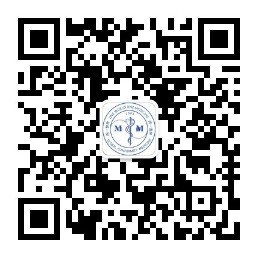目的探讨个体怀旧疗法联合认知训练在早期认知障碍老年人的应用效果。方法利用个体怀旧疗法联合认知训练对18例早期认知障碍老年人实施干预,并在干预前、干预后应用简易精神状态评价量表(MMSE)、老年人抑郁量表(GDS-15)、健康调查简表(SF-36)进行测评,比较干预前后老年人认知障碍的改善情况。结果4个月干预后,老年人MMSE量表评分、SF-36问卷评分均显著优于干预前(P<0.05),但干预前后,老年人GDS-15评分比较差异无统计学意义(P>0.05)。干预后,老年人MMES中的定向力、注意与计算能力和回忆力方面评分显著高于干预前(均P<0.05),但干预前后,老年人记忆力、语言能力比较,差异无统计学意义(P>0.05)。结论个体怀旧疗法联合认知训练能改善老年人认知功能及提高生活质量。
当前位置:首页 / 个体怀旧疗法联合认知训练在早期认知障碍老年人中的应用及效果评价▲
论著
|
更新时间:2019-01-07
|
个体怀旧疗法联合认知训练在早期认知障碍老年人中的应用及效果评价▲
Application and efficacy assessment of individual reminiscence therapy combined with cognitive training in elderly people with mild cognitive impairment
微创医学 201813卷06期 页码:726-728+742
作者机构:1 广西医科大学护理学院,南宁市530021;2 广西医科大学第三附属医院,南宁市530031
基金信息:▲基金项目:广西职业教育教学改革立项项目(编号: GXGZJ2015B001);广西科技重点研发计划项目(编号:桂科AB18221006) *通信作者
- 中文简介
- 英文简介
- 参考文献
ObjectiveTo explore the efficacy of individual reminiscence therapy combined with cognitive training in the elderly people with mild cognitive impairment. MethodsIntervention by individual reminiscence therapy combined with cognitive training was conducted in 18 elderly people with mild cognitive impairment. Before intervention and after intervention, assessment was performed using Mini-Mental State Examination (MMSE), Geriatric Depression Scale-15(GDS-15) and the MOC item short form health survey (SF-36).The improvement of cognitive impairment before and after intervention was compared in the elderly people. ResultsAfter 4 months of nursing intervention, the scores of MMSE and SF-36 were superior to the scores before intervention(P<0.05). There was no statistical difference between the GDS-15 scores before and after intervention. Of the 5 items of MMSE, the scores of orientation, attention and calculation abilities, and recall capability after intervention were significantly higher than those before intervention(all P<0.05) . Compared to the items before intervention, no statistical differences in memory and verbal skill were found after intervention(P>0.05). ConclusionThe individual reminiscence therapy combined with cognitive training can improve the cognitive function and the quality of life in the elderly people with mild cognitive impairment.
-
无




 注册
注册 忘记密码
忘记密码 忘记用户名
忘记用户名 专家账号密码找回
专家账号密码找回 下载
下载 收藏
收藏
